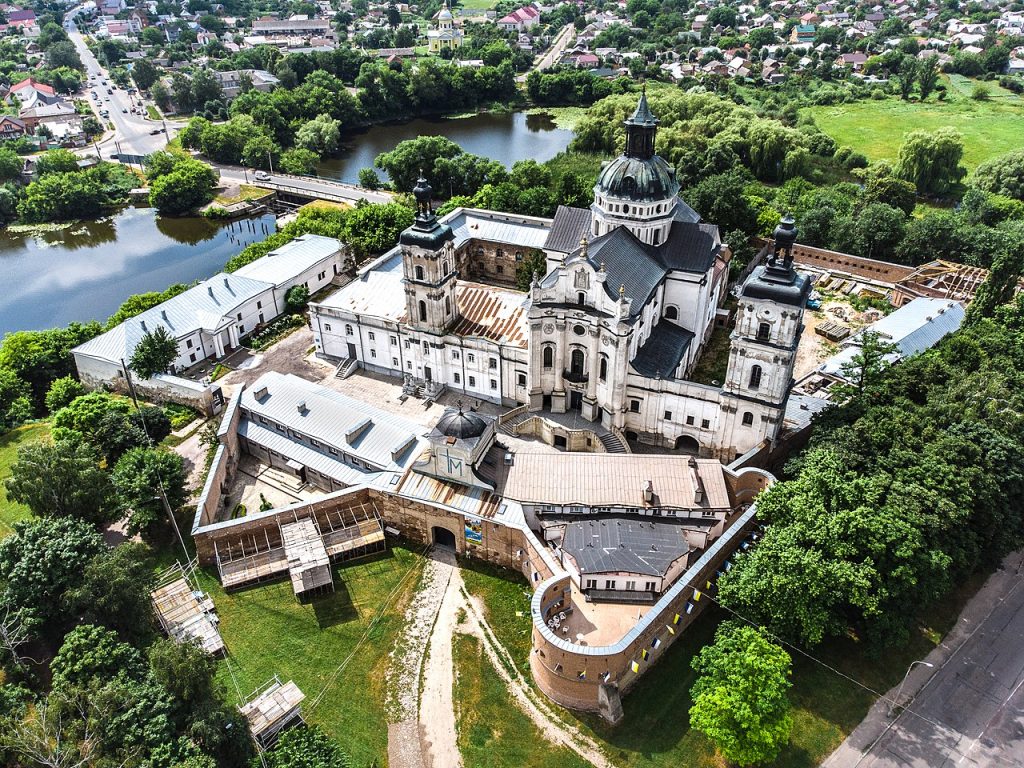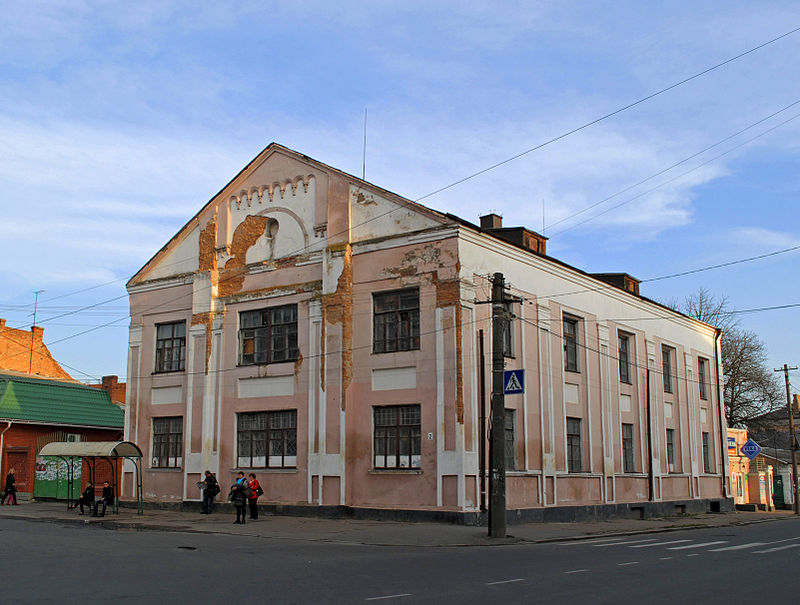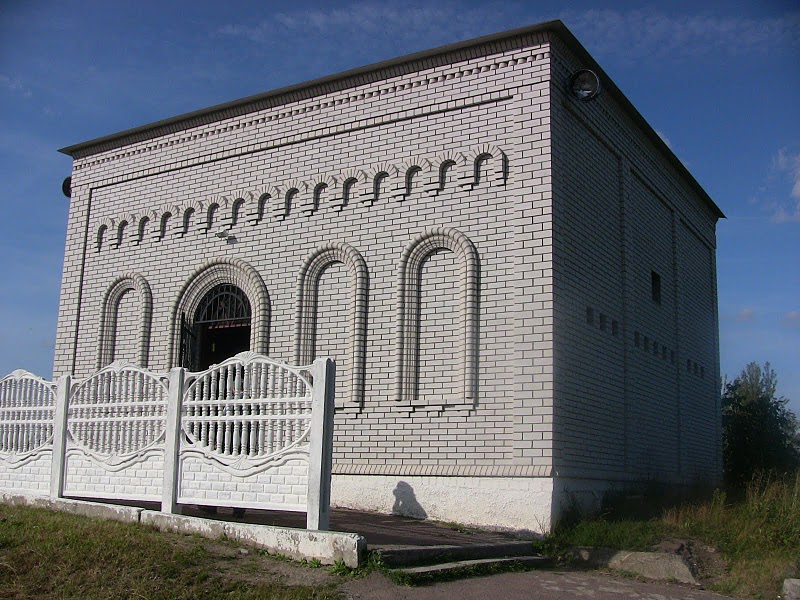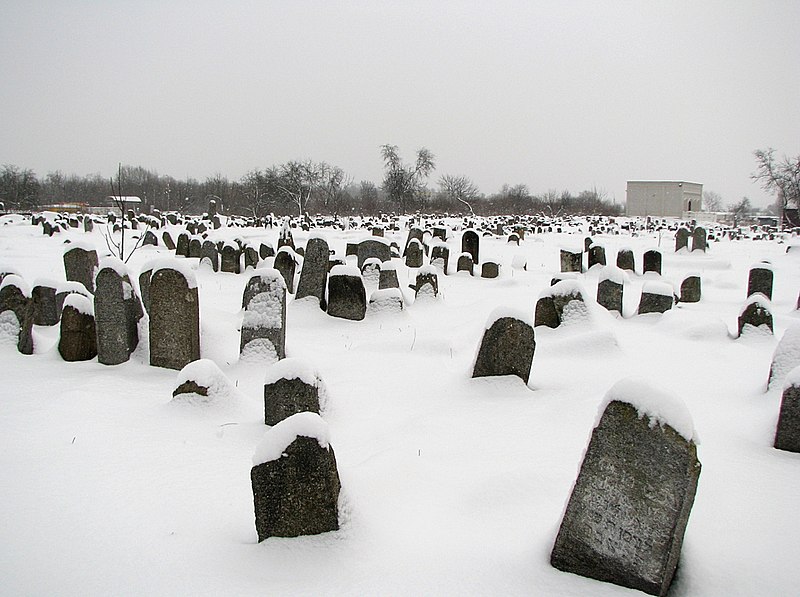
The terrifying war against Ukraine changes, of course, the function of these pages devoted to the Jewish cultural heritage of that country. Many of the places mentioned were razed to the ground by bombs. While these pages are not intended in the present time for tourism, they may be useful to researchers and students as historical references. References to so many painful histories during the pogroms and the Shoah, but also to the glorious history of Ukrainian Judaism, in its cultural, religious and Zionist dimensions. Wishing the Ukrainian people a speedy end to these atrocities of which they are victims.
Founded in 1546, the illustrious city of Berdichev (which was Polish until 1793) is towered over by the dome of the large Baroque church here, a former Carmelite cloister dating from 1627.

Jews began settling in Berdichev in the seventeenth century, drawn by the fairs regularly held here. In the late eighteenth century, the city had become a major Hasidic hub centered around the tsadik Yitshak Levi of Berdichev (who died in 1808), a disciple of the Great Maggid of Mezritch.
A century later, Berdichev had become an almost entirely Jewish city, with a community of 41,600 members of a total 53,300 residents, or 80% of the population. In Russian jokes or “anecdotes”, Berdichev was the epitome of a Jewish city.
French novelist Honoré de Balzac, who married Mrs Hanska in a church in Berdichev, described the city as a “Jewish encampment”.
A real dump!
A well-dressed stranger once came to Berdichev. A Jewish tailor asked him:
-Where did you have your clothes made?
-In Paris.
-Is it far from Berdichev?
-Over a thousand miles.
-It must be a dump. But they sure know how to sew.”
Because of its symbolic name, the Germans attacked Berdichev with particular ferocity when they occupied the city on 6 July 1941. They liquidated the ghetto within three months. Vassili Grossman, a native of Berdichev, described the details of this annihilation in his books Life and Fate (New York: Harper & Row, 1986) and The Black Book (New York: Holocaust Publications, 1981).
Remains of the ghetto
The ghetto, properly speaking, where the Jews all had to gather in July 1941, was referred to as Yatki. It stretched west of Zitomirskoye Road (today Lenon Street) and encompassed the streets Staragorodskaya, Bielopolskaya (current 9-May), Glinka, Bolshaya-Zitomirskaya (now Sholem Aleichem). These streets have hardly changed since then and appear just as Grossman describes them: unpaved dirt roads full of puddles and mud. At the center of the Yatki ghetto there was a market and the old Berdichev synagogue.

In September 1941, young men and women in the ghetto were ordered to come “dig up potatoes”. On 15 September, 18,600 people, practically the entire ghetto, were murdered near the village of Khajino. A commemorative gravestone marks the site, indicating merely that the victims were “peaceful Soviet citizens”.
Digging for potatoes
“And we learned today, from a peasant friend who was passing by the barbed wire, that the Jews who had been taken to dig up potatoes were actually digging deep trenches, two miles from the city near the aerodrome on the road to Romanovka. Remember that name, Vitia, for that is where you will find the mass grave where you mother will be buried.”
Vassili Grossman, Life and Fate. (New York: Harper & Row, 1986).
The lone synagogue
Berdichev once featured a number of synagogues, prayer houses, and even a Hebrew printing shop. Only one synagogue remains today, at the top of Sverdlov Street, where the city’s last 700 Jews, most of them elderly, strive to keep their tradition alive.

The large Jewish cemetery in Berdichev is impressive, with beautiful old graves often overgrown with vegetation. A path between the graves leads to a mausoleum built above the grave of Rabbi Levi Yitshak, the “great master who knew how to read between the lines of the Torah”.